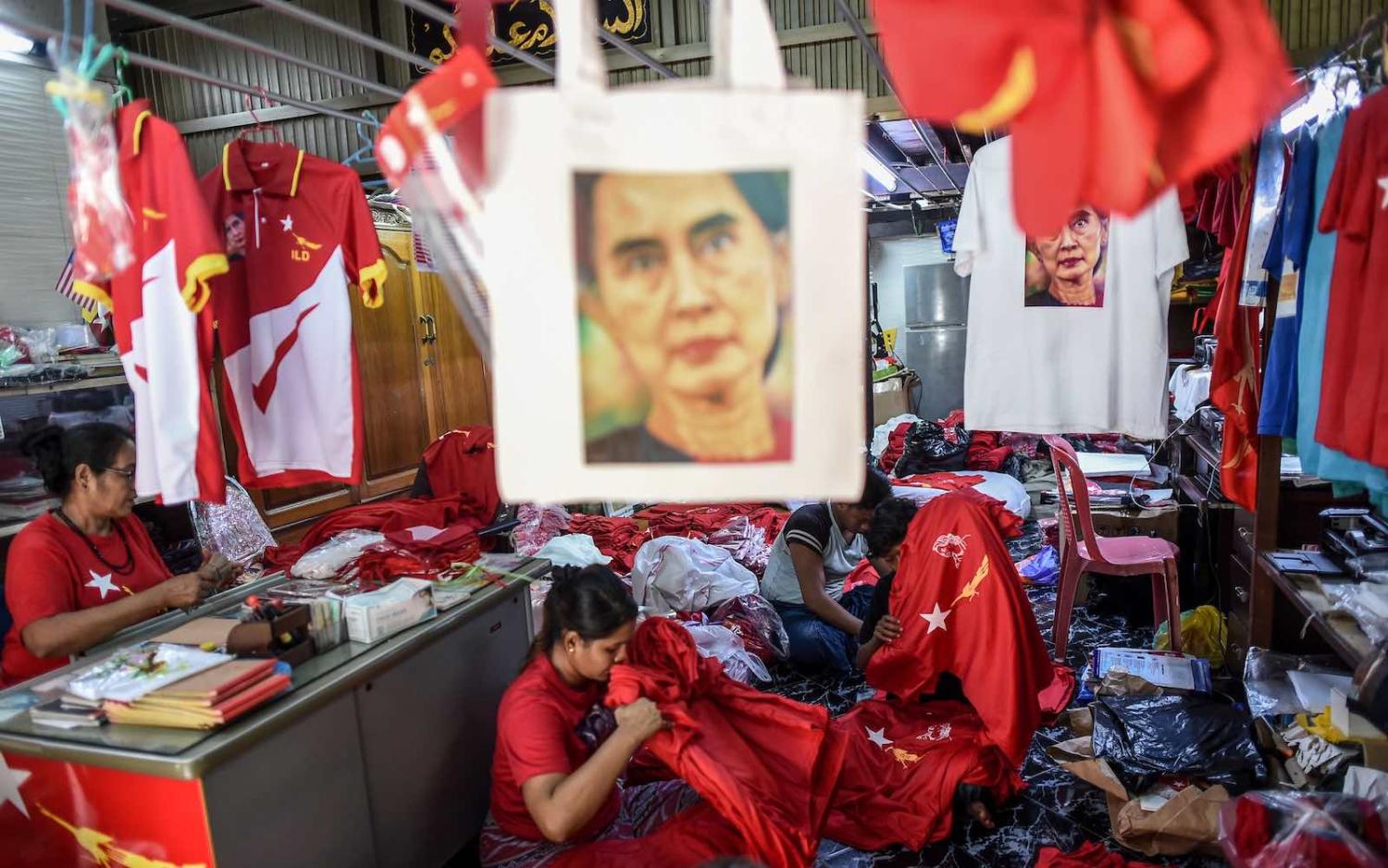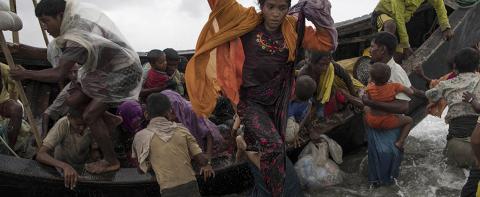Myanmar’s general election, scheduled for 8 November, looms as only the second to be completed since the 1962 military coup, and therefore a rarity in the lifetimes of most of Myanmar's voters. The first completed democratic poll since then was in 2015, which resulted in the triumphant return of Aung San Suu Kyi, known across the nation as The Lady, or Daw (mother) Suu, and her National League for Democracy (NLD) party. Elections in 1990 also resulted in a landslide win for the NLD, but the results were ignored by the military regime.
Suu Kyi’s marriage to an English national legally precluded her from occupying the President’s office in Naypyidaw, so she was shoehorned into a hastily created position, State Counsellor, which has given her considerable titular power – but often not ultimate power – over the direction of Myanmar’s national and international affairs. Some observers assumed that this state of affairs meant the country was on an even democratic keel. But the last five years have shown such confidence to be unfounded. While Suu Kyi’s NLD dominated the vote last time, 25% of parliamentary seats remain reserved for military appointees. Furthermore, the Lady herself has proved a disappointment to those expecting an expansion of freedoms and rights, especially for persecuted minorities such as the Rohingya. Suu Kyi’s stoic stare-downs in the face of criticism from a spectrum of international bodies on her human rights record, for instance, has made enemies of past allies.
A poor turnout plus a creaky administration and, it can be assumed, some outright electoral cheating will most likely provide a largely unrepresentative election result.
The November polls will most likely be conducted under the shadow of Covid-19 restrictions. As such, they hark back in some ways to the constitutional referendum of 2008. In May of that year, just days before the poll on the military’s new “democratic” constitution was to be held, Cyclone Nargis ripped through the country, devasting a vast area and killing almost 140,000 people. Many people couldn’t physically make it to vote, but the military leadership decided not to let that fact stop them from pushing on. Thus, only a few weeks after Nargis, the pro-military “Khaki Constitution”, which still governs Myanmar today, was voted in.
Similarly, amid this year’s crisis, it may be that November provides an incomplete and murky reflection of the mood of the people. Other, more predictable, factors also mitigate against a clean result.
In July, the Union Election Commission, the official body that administers elections in Myanmar, rejected the application of noted internal election observers, the People’s Alliance for Credible Elections (PACE), to observe the November polls. The UEC later reversed that decision, but the attempt, botched though it was, implies some political dark arts are in motion.
Equally troubling are reports that current voter lists are incomplete or unreliable and have been so since at least the 2015 elections. The issue has attracted the opprobrium of Suu Kyi herself. Yet, even as she expresses frustration over the situation, she seems unwilling or unable to do much about it.

Voters in the troubled Rakhine state, most of whom are Rohingya Muslims, may not be able to vote at all because of decades-long citizenship disputes and the campaign of violence, displacement and general disenfranchisement conducted by the military. Some 46 electoral rolls in Rakhine have been withheld by electoral authorities, and Rohingya campaigners argue that historic anti-Rohingya structures remain in place. More than 800,000 Rohingya are still living as refugees across the border in Bangladesh, with little hope of returning anytime soon.
An election boycott has been called by two influential groups, the All Burma Federation of Student Unions and the All Burma Federation of Trade Unions. As evidence that the 2008 constitution still weighs heavily on the political landscape, both groups argue that until the constitution changes its pro-military character, any election is pointless.
Indications so far are that some of Myanmar’s 37 million voters – including 5 million first-timers – may well agree. Others may be put off by the current pandemic. Others still will not bother to vote, on the assumption that the NLD will win easily anyway. Whatever the cause, numbers so far suggest Myanmar’s voters are less than enthusiastic about the big dance in November. For instance, only 12% of voters in Yangon, the country’s largest city, have registered so far.
This fraught landscape does not augur well for new and newish parties, such as the People’s Pioneer Party, or for a spate of independent candidates.
A poor turnout plus a creaky administration and, it can be assumed, some outright electoral cheating, added to by the vast bulk of Myanmar’s two political heavyweights in the NLD and the USDP (the pro-military opposition), will most likely provide a largely unrepresentative election result and essentially serve the status quo.
Despite the appearances of a national election process, indications so far suggest that as long as the current constitution runs the show in Myanmar, true democracy remains a dim prospect. And the people, it seems, are well aware of it.

